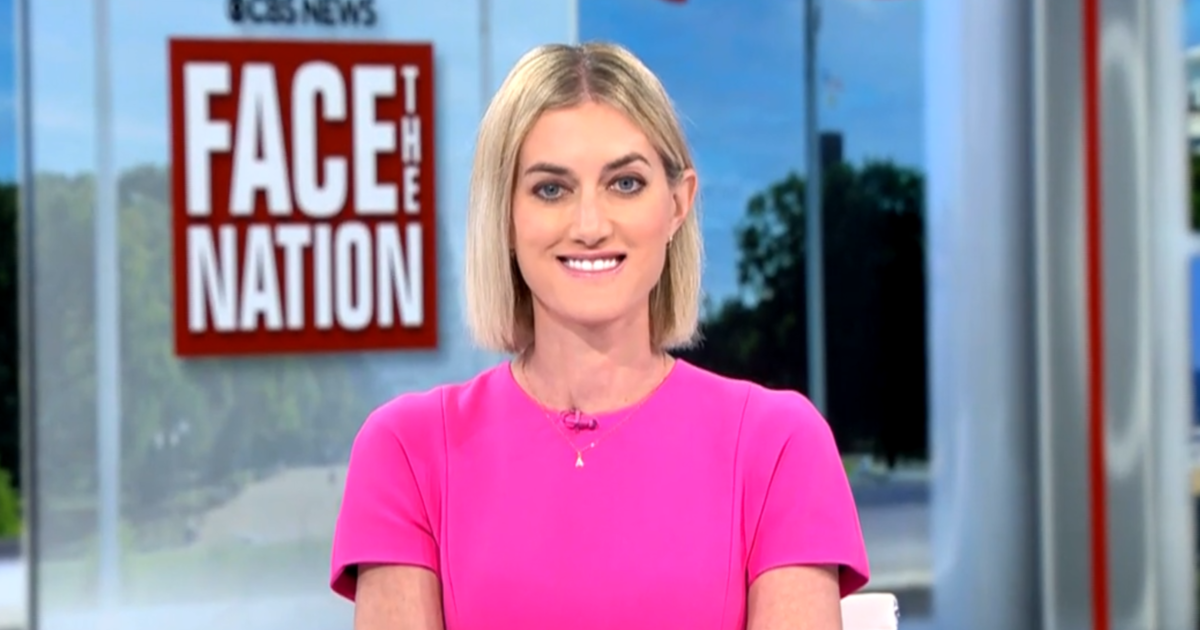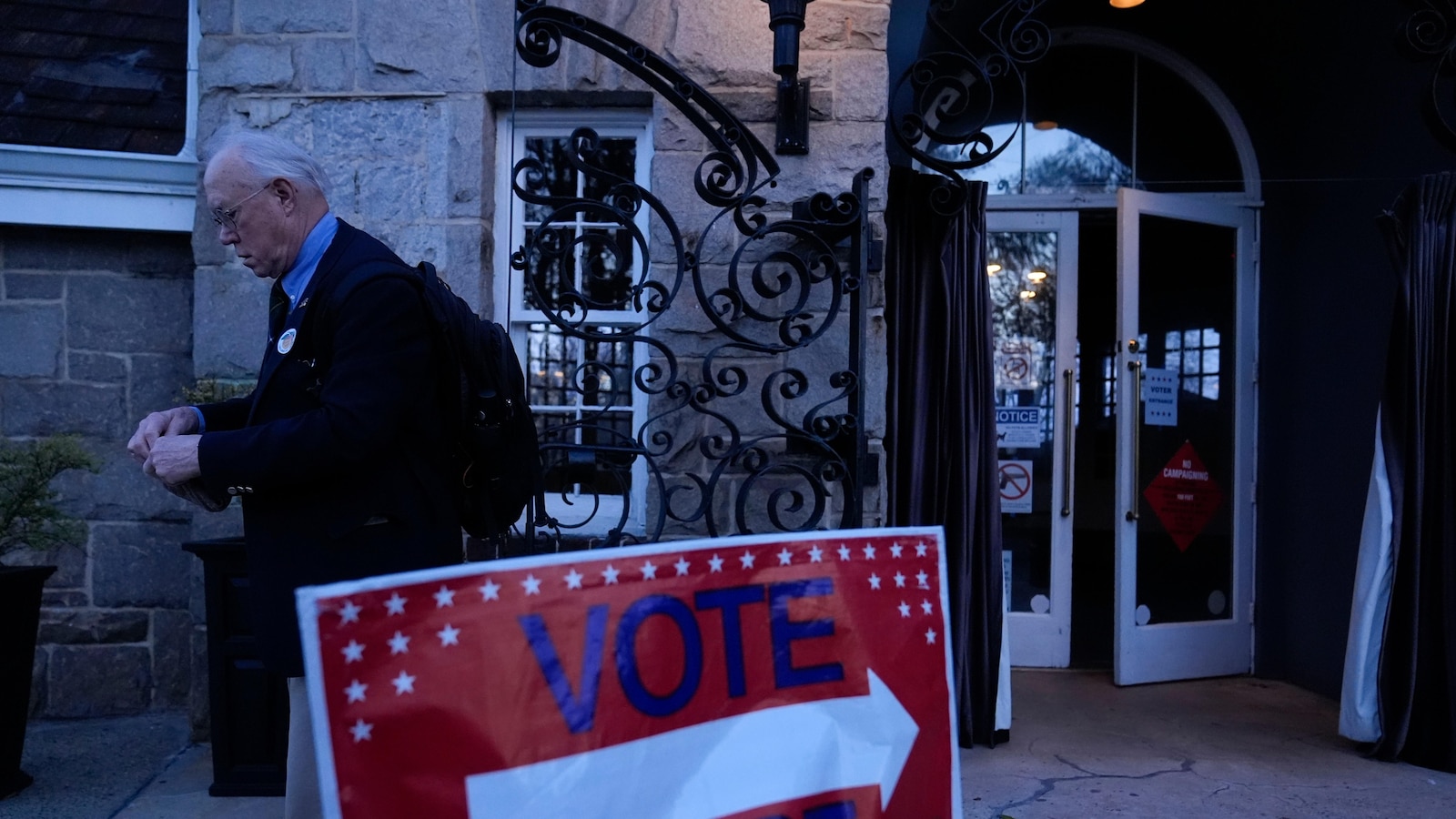[ad_1]
The following is a transcript of an interview with CBS News contributor Sam Vinograd, a former Homeland Security official, on “Face the Nation” that aired on June 16, 2024.
MARGARET BRENNAN: We’re joined now by Samantha Vinograd, a former top counterterrorism official at the Department of Homeland Security under President Biden and she is now a national security contributor here at CBS. Good to have you back, I’d like to have you help us digest some of what we talked about with this arrest of these eight individuals who made it all the way from Central Asia through the southern border, and were arrested this past week by the FBI and ICE. There was no derogatory information found on them when they were scooped up initially. How thorough is the vetting done by federal border agents?
SAMANTHA VINOGRAD: Well Margaret, let me put vetting in context, I was responsible for screening and vetting policy at DHS, every individual encountered at our borders is vetted. What that means is individuals’ identities are run against certain data sets or watch lists of terrorism related and other derogatory information. However, the vetting is only as good as the underlying content in those watch lists. And I do believe that we have under-resourced foreign terrorism related intelligence collection, analysis, and distribution in a way that is adversely impacting the quality of those watch lists themselves. We do have gaps when it comes, for example, to information on bad actors in Central Asia. So today, I am less concerned about an individual on our watch list somehow sneaking through our southern border than I am about a bad actor who is unknown to us. And that’s why we need to urgently prioritize deepening intelligence partnerships, with, for example, countries in Central Asia, and ensuring that we are fully exploiting all of the intelligence that had been collected to date on bad actors, their travel patterns and more.
MARGARET BRENNAN: And when you say under-resourced, Congress controls the purse strings and the allocation of that, including Chair Turner’s committee would have a voice in that, correct?
VINOGRAD: Yes, that is true. At the same time, the federal government has made decisions about other intelligence priorities, for example, great power competition with China and Russia has taken resources away from foreign terrorism priorities like ISIS and Al-Qaeda, and I do believe has led to somewhat of a mis-assessment of the objectives of what had previously been viewed as regional affiliates of ISIS, like ISIS-K, ISIS-Khorasan, which we now assess, does have really global ambitions rather than staying focused on Afghanistan, Pakistan and Central Asia.
MARGARET BRENNAN: And- and you raise an important point there that we have just to connect for people, we no longer have a presence in Afghanistan and the intelligence capabilities we once did when there was a military presence on the ground. So those surrounding countries that we’re talking about whether it’s Tajikistan or Uzbekistan, those are the places you’re talking about ISIS-K emanating out of, right?
VINOGRAD: Well, we did lose what we call battlefield intelligence when we withdrew from Afghanistan and Iraq. We also know that ISIS has really leveraged a global franchise model, if you will, where they have built up regional affiliates. For example, in parts of Central Asia, ISIS-K is a regional affiliate in that part of the world. But what we are now seeing is these regional affiliates conducting attacks in an ever expanding geographic scope. What that means is we need more and better intelligence on individuals in these areas, because they do seek to do harm. In Europe, we had a worldwide threat advisory a few months ago issued by the State Department, as well as potentially here in the homeland.
MARGARET BRENNAN: You had the State Department and explained that the US and Turkey were sanctioning three individuals who had ties to ISIS-K and a network of human smugglers trying to bring people here to the US. That brings us back to the southern border. You know, how much of a vulnerability is it?
VINOGRAD: Well, Turkey has been a relatively uneven counterterrorism partner but has recently stepped up and taken some very important action to number one sanction individuals who may pose a terrorism related threat, and try to address some known facilitation routes for human smugglers. Our southern border does present a security risk when it comes to bad actors trying to gain access to this country. To address the risks at our southern border, we need to ensure that federal agents are appropriately resourced. We need to ensure again that we have the right intelligence feeding our watch lists. So we know what to watch out for and we need to disincentivize individuals from trying to come here in the first place.
MARGARET BRENNAN: So does- given that the President just had this executive order that may be challenged in court, but trying to shut down asylum and crossing the border. Does he also have the authority to shut down travel from these areas of concern and specific countries?
Could he–
VINOGRAD: Well–
MARGARET BRENNAN: –do that?
VINOGRAD: Well, just to clarify, the President isn’t trying to shut down asylum at the border, he is trying to restrict asylum between individuals’ ability to claim assignment- asylum between ports of entry- entry, which is slightly different. The President under Section 212(f) of the Immigration Nationality Act does have the authority to restrict entry of certain non-citizens under specific circumstances. Mr. Trump did previously use that authority during COVID. That is the authority that President Biden is relying on in his latest executive order.
MARGARET BRENNAN: Could he direct it more narrowly towards these areas of concern? I mean, why is it that the information you’re saying that feeds those watch lists is so poor when it comes to a country like Tajikistan?
VINOGRAD: Well, President Biden again, could try to use this authority to restrict the travel of certain non-citizens under various circumstances. He could choose to take that route, I do think it would be challenged in court like this current executive order is, but by the same token, I think it’s critical that he works, and I know the administration is doing this, to deepen intelligence cooperation with these countries. So for example, last summer, we did have this threat stream that you mentioned emanating from Uzbekistan, and that led to a deepened intelligence and law enforcement partnership between the United States and Uzbekistan. There have been for example, removal flights of Uzbek nationals back to Uzbekistan, I do believe the same approach is being taken with Tajikistan but that will take time. And simultaneously, we do have Customs and Border Protection and ICE who have broad discretion to make operational changes at the border to, for example, detain all individuals from these countries rather than, for example, releasing them into the homeland.
MARGARET BRENNAN: Sam, always good to have you here.
VINOGRAD: Thanks.
MARGARET BRENNAN: We’ll be right back.



